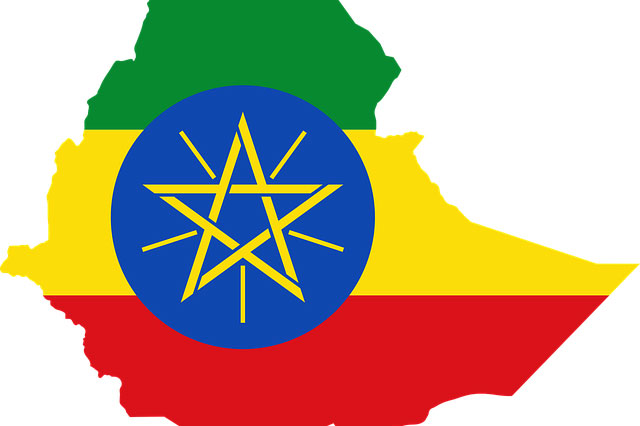Nairobi – The international community on Monday urged warring sides in Ethiopia to seize the moment for peace after Tigrayan rebels said they were ready for talks led by the African Union to end almost two years of brutal warfare.
There has been a flurry of diplomatic efforts to push for negotiations after fighting flared in northern Ethiopia in late August for the first time in several months, torpedoing a humanitarian truce and cutting off aid deliveries to war-stricken Tigray.
Tigrayan authorities said Sunday they were “prepared to participate in a robust peace process under the auspices of the African Union,” after previously rejecting AU mediation and saying they wanted Kenya to lead any talks.
“We are ready to abide by an immediate and mutually agreed cessation of hostilities,” Tigray’s regional government said in a statement coinciding with Ethiopia’s new year.
ALSO READ | AU hails rebels’ readiness for Ethiopia peace talks
The government has not formally commented on the Tigrayan stance but has previously said it was ready for unconditional talks “anytime, anywhere,” brokered by the AU, which is headquartered in Addis Ababa.
The Tigray People’s Liberation Front (TPLF) had until now vehemently opposed the role of the AU’s Horn of Africa envoy Olusegun Obasanjo, protesting his “proximity” to Ethiopian Prime Minister Abiy Ahmed.
Untold numbers of civilians have been killed since the war erupted in Africa’s second most populous country in November 2020, and the fighting has left millions of people across northern Ethiopia in need of emergency aid.
UN Secretary-General Antonio Guterres urged “the parties to seize this opportunity for peace and to take steps to end the violence definitively and opt for dialogue”.
‘Unique opportunity’
AU Commission chief Moussa Faki Mahamat also welcomed the development as a “unique opportunity towards the restoration of peace” and urged “both parties to urgently work towards an immediate ceasefire, engage in direct talks”.
Similar messages were issued by US Secretary of State Antony Blinken and EU foreign policy chief Josep Borrell.
“We call on the country’s leaders to put Ethiopia on a path that ends the suffering and achieves a lasting peace,” Blinken said in a statement.
ALSO READ | Ethiopia marks new year under cloud of conflict, inflation
Ethiopia’s international partners were ready to support the peace process, he said, but added: “Eritrea and others should cease fuelling the conflict.”
Fighting has raged on several fronts in northern Ethiopia since hostilities resumed on August 24, with both sides accusing the other of firing first and breaking a March truce.
The TPLF also accused Ethiopia and neighbouring Eritrea – whose forces were involved in the early phase of the war – of having launched a massive joint offensive on Tigray on September 1.
Access to northern Ethiopia is severely restricted and it is not possible to verify what is happening on the ground.
‘Unfettered humanitarian access’
The Tigray statement made no mention of preconditions for talks, although it said the Tigrayans expected a “credible” peace process with “mutually acceptable” mediators as well as international observers.
TPLF leader Debretsion Gebremichael last week proposed a conditional truce calling for “unfettered humanitarian access” and the restoration of essential services in Tigray, whose six million people are suffering food shortages and a lack of electricity, communications and banking services.
In a letter to Guterres, he also called for the withdrawal of Eritrean forces from across Ethiopia, and for troops to pull out of western Tigray, a disputed region claimed by both Tigrayans and Amharas, the country’s second-largest ethnic group.
Debretsion had disclosed last month that two rounds of confidential face-to-face meetings had taken place between top civilian and military officials, the first acknowledgement by either side of direct contacts.
ALSO READ | UN says aid halted to Ethiopia’s Tigray after renewed clashes
Sunday’s statement said a negotiating team including TPLF spokesman Getachew Reda and General Tsadkan Gebretensae, a former Ethiopian army chief now in Tigray’s central military command, was “ready to be deployed without delay”.
The March truce had allowed humanitarian convoys to travel to Tigray’s capital Mekele for the first time since mid-December.
But the United Nations said last week that the renewed fighting had forced a halt to aid deliveries to Tigray, both by road and air.
Abiy, a Nobel Peace laureate, sent troops into Tigray in November 2020 to topple the TPLF in response to what he said were attacks by the group on federal army camps.
But the TPLF recaptured most of Tigray in a surprise comeback in June 2021.
It then expanded into the neighbouring regions of Afar and Amhara before the fighting reached a stalemate.
Follow African Insider on Facebook, Twitter, Instagram
Picture: Pixabay
Compiled by Betha Madhomu


